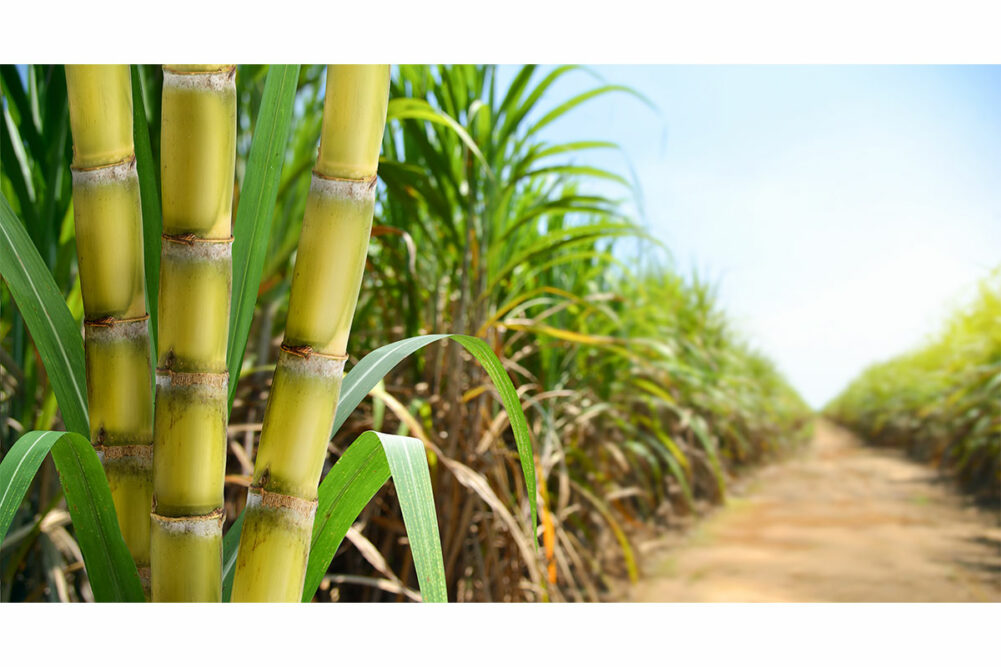Exploring the Global Impact of Sugar and Cane on Economy and Culture
Exploring the Global Impact of Sugar and Cane on Economy and Culture
Blog Article
Why Cane Sugar Processing Chemicals Are Crucial for Modern Sugar Refining
The function of cane sugar processing chemicals in contemporary sugar refining can not be overemphasized, as they are essential to boosting both the efficiency of extraction and the total quality of the final item. Representatives such as phosphoric acid and particular flocculants are used to eliminate pollutants, causing sugar that not just satisfies customer expectations however additionally abides by industry requirements. Nonetheless, the implications of these chemicals expand beyond top quality, discussing market dynamics and environmental considerations. This increases crucial questions about the sustainability of such practices and their influence on the future of sugar manufacturing.
Role of Processing Chemicals
The efficacy of walking stick sugar processing hinges dramatically on the tactical application of processing chemicals. These chemicals play a critical role in improving the performance and top quality of sugar extraction and refining. From the initial stages of juice extraction to the final purification actions, handling chemicals assist in numerous critical procedures.
In the removal phase, chemicals such as phosphoric acid and calcium hydroxide are employed to enhance the information process, helping to get rid of impurities and put on hold solids from the walking cane juice. This not only improves the return but also ensures the quality of the last product. Additionally, agents like flocculants help in the quick settling of pollutants, thereby enhancing the general process.
Triggered carbon and ion exchange resins offer to eliminate color and smell, making sure that the refined sugar fulfills consumer high quality criteria. Thus, the thorough selection and application of these chemicals are crucial for achieving ideal end results in cane sugar handling.
Key Sorts Of Chemicals
Cane sugar handling counts on a range of crucial chemicals that assist in each phase of production. These chemicals play crucial functions in clarifying, whitening, and purifying the sugar drawn out from walking cane.
One main classification of chemicals consists of flocculants, such as polyacrylamide, which aid in the clarification procedure by advertising the gathering and settling of contaminations. Additionally, calcium hydroxide is frequently used to counteract acidity and help in the removal of non-sugar elements.
Bleaching agents, such as triggered carbon and sulfur dioxide, are utilized to decolorize the syrup, leading to a more clear final product. These chemicals assist get rid of color compounds that may affect the sugar's look and bankability.
Furthermore, phosphoric acid works as a pH regulator throughout the processing stages, guaranteeing ideal conditions for the enzymatic activities associated with sugar extraction and filtration.
Various other crucial representatives include edta (ethylenediaminetetraacetic acid), which chelates metal ions that can militarize unfavorable reactions, and sodium hydroxide, which assists in pH control throughout the refining procedure. Collectively, these chemicals boost effectiveness and ensure a top quality cane sugar item.
Benefits for Sugar Top Quality
Typically overlooked, making use of particular handling chemicals considerably boosts the general quality of walking stick sugar. These chemicals play a pivotal function in refining processes, making sure that the end product meets rigorous market standards for purity and preference.

Additionally, processing chemicals aid in attaining Check Out Your URL a regular granulation and appearance, which are essential for customer approval. By controlling the crystallization procedure, these chemicals make certain that the sugar crystals create evenly, bring about a much more attractive product that liquifies well in numerous applications.
Additionally, the use of these chemicals can enhance the shelf life of walking cane sugar by decreasing wetness absorption and microbial growth. Overall, the critical application of handling chemicals is vital for delivering high-quality walking cane sugar that fulfills consumer assumptions and market demands.
Ecological Influence Considerations

Moreover, the energy-intensive nature of sugar refining, worsened by chemical use, commonly leads to raised carbon exhausts. This adds to environment change and increases issues regarding the sustainability of present refining methods. Furthermore, the sourcing of these chemicals may involve practices that endanger biodiversity, such as monoculture farming, which reduces the strength of farming communities.

To mitigate these influences, sugar refiners are significantly discovering lasting options and adopting best techniques that decrease chemical use. Executing rigorous ecological monitoring systems can see here assist guarantee that the refining process straightens with ecological criteria and promotes biodiversity. Ultimately, a well balanced technique that prioritizes both sugar quality and environmental stewardship is essential for the lasting feasibility of the sugar market.
Future Patterns in Refining
As the sugar market comes to grips with the ecological difficulties linked with typical refining approaches, ingenious strategies are arising to enhance both efficiency and sustainability. One considerable trend is the fostering of eco-friendly chemistry concepts, which focus on making use of safe, eco-friendly processing chemicals. This change not only lessens environmental effect but additionally addresses consumer demand for cleaner manufacturing methods.
An additional promising growth is the implementation of innovative filtration innovations, such as membrane layer separation and adsorption procedures. These techniques boost the clarity and top quality of the sugar while reducing the quantity of wastewater generated during refining. Additionally, the assimilation of electronic technologies, consisting of IoT and AI, is transforming operational effectiveness by enabling real-time surveillance and anticipating maintenance, therefore lessening resource waste.
Furthermore, making use of byproducts from sugar refining, such as bagasse and molasses, is gaining traction. These materials can be transformed right into biofuels or value-added items, adding to a circular economy within the market. Jointly, these fads signify a change in the direction of more sustainable practices that not only boost functional performance but also align with global sustainability goals, making sure the future feasibility of sugar refining.
Verdict
Walking cane sugar handling chemicals are important in modern sugar refining, substantially boosting the performance and top quality of sugar removal. The strategic use these chemicals not just boosts the pureness and taste of the last item but likewise makes sure regular crystallization and texture. As the industry increasingly prioritizes sustainability, the fostering of environmentally-friendly handling representatives is most likely to form future fads in refining, ultimately leading to better items and expanded life span for customers.

Inevitably, a balanced method that prioritizes both sugar quality and environmental stewardship is crucial for the long-term feasibility of the sugar sector.
Cane sugar processing chemicals are vital in modern-day sugar refining, significantly enhancing the effectiveness and high quality of sugar removal.
Report this page